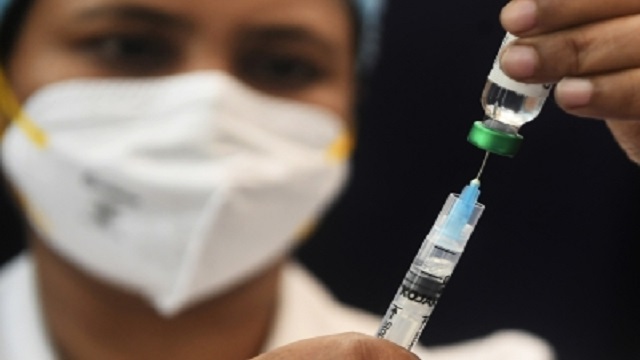New Delhi: As the second wave of Covid-19 debilitates the country’s health infrastructure and causes an unprecedented humanitarian crisis, the need of the hour is a potentially life-saving vaccination dose. However, it may not even reach all the citizens, says Oxfam India, urging the government to move beyond profit-making strategies and save lives.
“The keyword here is ‘share’. We live in a country of over 1,361 million people and yet two active vaccines are expected to serve every citizen even though they are being patented and controlled only by the pharma companies that created them. This discrepancy between need and supply is caused by limited dosage production which in turn also ramps up costs,” said CEO Amitabh Behar, Oxfam India, in a statement on Thursday.
“What is problematic is the cost flexibility given to state governments and private buyers which will leave the door open for middlemen and increase the cost of a vaccine which is needed by millions during this crisis,” he added.
India on Thursday recorded 4,12,262 fresh cases and 3,980 deaths in the last 24 hours, Union Ministry of Health and Family Welfare said. The health ministry said that a total of 16,25,13,339 people have been vaccinated so far in the country, including 19,55,733, who were administered vaccines in the last 24 hours. However, close to 600 million more Indians needed to be vaccinated, Behar said.
“An acute shortage of vaccine doses can only spell doom and it is critical that these vaccines be free and available for everyone. The government needs to adopt a ‘People’s Vaccine Plan’ that serves all citizens and takes profiteering out of the equation. India needs a vaccine that is for people and not for profit and a vaccination module that is not only for those who have spending power,” Behar said.
Behar also raised concerns that no cap has been placed on the vaccine price and individual companies are now free to declare their own costs. People are expected to pay over Rs 2,400 for two doses in the public system and Rs 3,600 in a private hospital. Comparative data suggests that most of India will be paying more than the richest countries of the world despite producing these vaccines domestically.
“These prices seem to have stemmed out of a producer declared monopoly price and not one that is “discovered” through competitive price. The rate fixed for India, equivalent to $5.25 also seems to be targeting the upper-middle-income groups in a country that is classified as a lower-middle-income country. Why is there such a lack of transparency in the fixation of these rates?” Behar said.
With India stepping into Phase 3 of its vaccination drive, the states have been burdened with the responsibility of making vaccines affordable. This decision to create two vaccine supply streams — for the centre and the states — marks a deviation from this historic precedent and is an abdication of responsibility by the centre, he lamented.
Without a universal free vaccination scheme to fall back on, a substantial share of the country’s population will potentially be priced out of the vaccine, Behar said.




 Ms Kalinga
Ms Kalinga